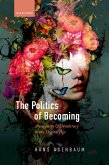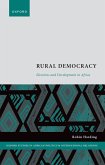This is an open access title available under the terms of a CC BY-NC-ND 4.0 International licence. It is free to read on the Oxford Academic platform and offered as a free PDF download from OUP and selected open access locations. In Civil Society's Democratic Potential, Nicole Bolleyer explores which civil society organizations (CSOs) contribute to democracy, how, and why. Organized civil society, including interest groups, political parties, and service-oriented associations, is traditionally considered a cornerstone of democracy. Constituting the organizational fabric between government and society, these organizations encompass a wide diversity of entities thought to fundamentally contribute to both democratic participation and representation. However, CSOs' readiness and ability to serve as venues for participation, vehicles of democratic representation, or indeed both at the same time, are increasingly questioned in political science, sociology, and voluntary sector research alike. Bringing those fields together, the author argues that two contrasting organizational templates - the 'voluntary association' and the 'professionalized voluntary organization' - allow theorizing fundamental trade-offs shaping CSOs' 'performance' on three dimensions accounting for their varying democratic contributions: participation, representation, and societal responsiveness. The study's innovative theoretical framework is examined using a mixed-methods design. The latter combines the analysis of survey data covering over 3000 CSOs across four European democracies with qualitative case studies of the evolution of three CSOs - a political party, an interest group, and a service-orientated organization - over several decades.
Dieser Download kann aus rechtlichen Gründen nur mit Rechnungsadresse in A, B, BG, CY, CZ, D, DK, EW, E, FIN, F, GR, HR, H, IRL, I, LT, L, LR, M, NL, PL, P, R, S, SLO, SK ausgeliefert werden.









